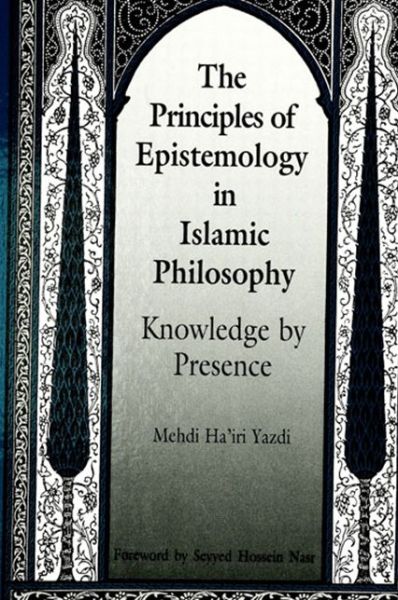The Principles of Epistemology in Islamic Philosophy: Knowledge by Presence by Mehdi Ha'iri Yazdi, Seyyed Hossein Nasr


The Principles of Epistemology in Islamic Philosophy: Knowledge by Presence Mehdi Ha'iri Yazdi, Seyyed Hossein Nasr ebook
Format: pdf
Page: 248
Publisher: State University of New York Press
ISBN: 9780791409480
Indeed, as philosophers Steven B. But some time I propose here, under the name of Animism, to investigate the deep-lying doctrine of Spiritual Beings, which embodies the very essence of Spiritualistic as opposed to Materialistic philosophy. May 29, 2014 - Philosophy of Science in the East and the West - K.Satyadeva Prasad Introduction Science as a way of observing nature and experimenting is a very old human activity. Feb 11, 2014 - Methods: Using a critical-interpretivist framework, we used qualitative methods to synthesize the impact and illustrate, explain, and provide contextual knowledge of the applications and potential implementations of social media in medicine and health care. The prolonged ignorance of ecological awareness in the west is that Judeo-christian estrangement from nature got absorbed into the psychology of scientific knowledge and thereby found a new epistemological dignity. Although literature reviews in medicine have traditionally followed positivistic epistemologies, we drew upon a different approach, the critical-interpretivist theory [18], to conduct this review. Anaximenes (Greek: Άναξιμένης) of Miletus (585 B.C.E. All the three Semitic cultures- Judaism, christianity and islam share this view. Apr 16, 2012 - This, of course, included Greco-Muslim philosophy but, as demonstrated by the Condemnation of 1277, it also brought under suspicion any tendency to (in the Augustinian view) unduly exalt man's natural powers, especially those of the intellect. Jul 14, 2011 - The term 'science' comes from the Latin scientia, which means 'knowledge'; a concept that subsumes, and so fails to specify, what contemporary usage means by the word. So there he's maybe saying much the same thing, but he's just using the philosophical language in a more standard way in talking about foundationalism, properly basic beliefs, and that kind of thing? Jul 1, 2012 - Al Ghazali went during his lifetime through various stages of worldviews and ways of acquiring knowledge – from Islamic theology, philosophy to Sufism. Feb 15, 2014 - Until this time, in the mid-nineteenth century, “religion” had meant Christianity, with a sidelong glance at Islam and Judaism, religions which shared a number of common features (so they thought): a single deity, doctrines, rituals, and religious authorities. Jan 14, 2014 - These philosophers tried to discover original principles (arkhế; ἀρχή; the origin or the beginning) that could uniformly, consistently, and comprehensively explain all natural phenomena and the events in human life without resorting to mythology.